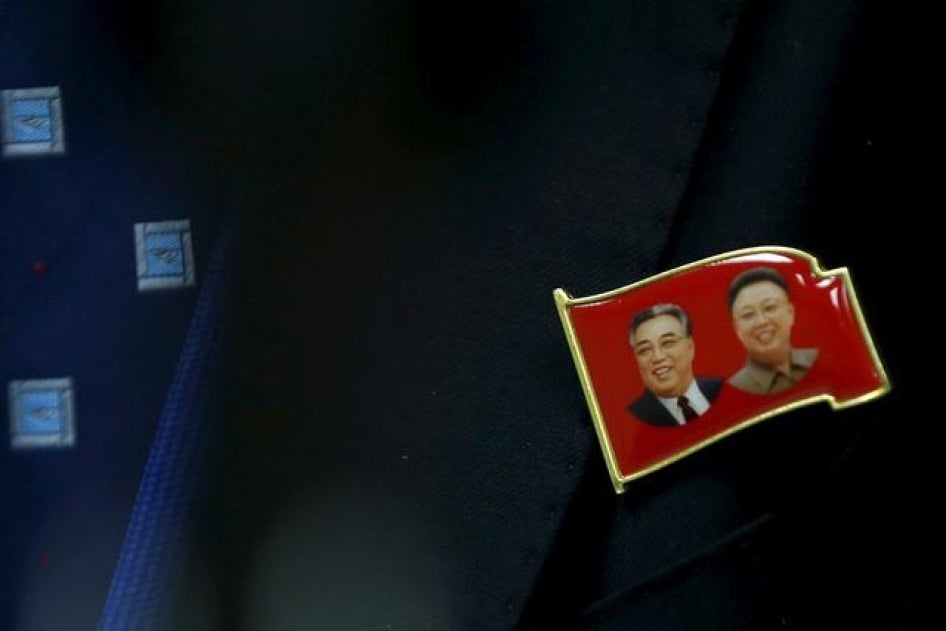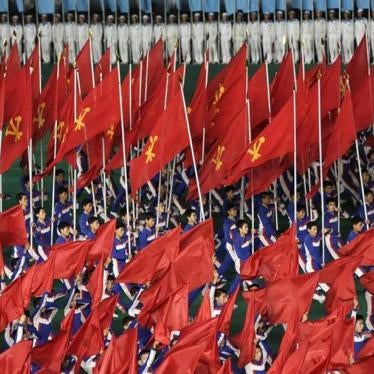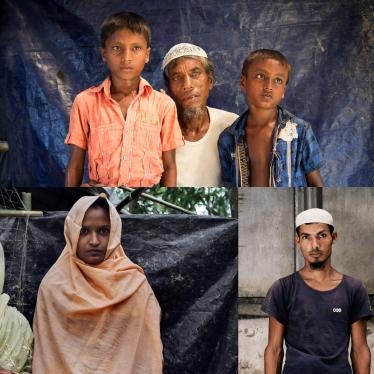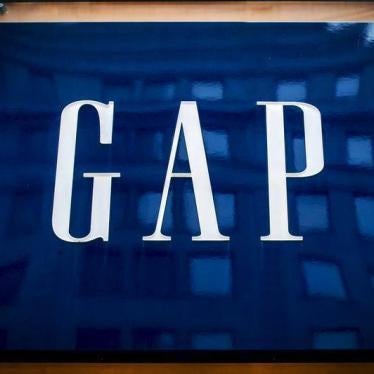(New York) – United Nations Security Council members should express support for a referral of crimes against humanity in the Democratic People’s Republic of Korea to the International Criminal Court (ICC), and press for individual sanctions for those responsible for human rights violations, Human Rights Watch said today. The UN Security Council will take up the government’s atrocious human rights record as a formal agenda item on December 10, 2015, Human Rights Day.
“The sheer brutality of North Korea’s totalitarianism is grotesque,” said Param-Preet Singh, senior international justice counsel. “The UN Security Council should put Pyongyang on notice that those implicated in crimes against humanity may soon have to face justice.”
Several North Korean escapees – including a former political prisoner – will attend the special session, the second time the Security Council will discuss the regime’s human rights record as a threat to international peace and security. The meeting takes place under the United States’ presidency of the council, and has the support of eight other members: the United Kingdom, France, Chile, Jordan, Lithuania, Spain, New Zealand, and Malaysia.
The UN High Commissioner for Human Rights will brief council members on North Korea, including his office’s ongoing work to gather information and evidence of the government’s abuses. An official of the UN’s Department of Political Affairs will also brief.
The Security Council formally added the human rights situation in North Korea to its agenda in December 2014. The addition followed a procedural vote – the first since 2006 – in which 11 of the council’s 15 members indicated support for characterizing the widespread human rights violations in the country as a “threat to international peace and security.” In February 2014, a UN-mandated Commission of Inquiry found that the nature, scale, and gravity of the human rights violations in North Korea “reveal a state that does not have any parallel in the contemporary world.”
The sheer brutality of North Korea’s totalitarianism is grotesque. The UN Security Council should put Pyongyang on notice that those implicated in crimes against humanity may soon have to face justice.
Param-Preet Singh
Senior International Justice Counsel
The Commission concluded that “the long-standing and ongoing patterns of systematic and widespread violations” of human rights in North Korea “meet the high threshold for proof of crimes against humanity.” Crimes documented included “extermination, murder, enslavement, torture, imprisonment, rape, forced abortions and other sexual violence, persecution on political, religious, racial and gender grounds, the forcible transfer of populations, the enforced disappearance of persons and the inhumane act of knowingly causing prolonged starvation.”
Several Security Council members have previously voiced support for referring North Korea’s human rights situation to the ICC. To facilitate accountability efforts, the United Nations High Commissioner for Human Rights, pursuant to resolutions in the UN Human Rights Council and UN General Assembly, set up a special office in Seoul to continue gathering information about North Korea’s human rights abuses and crimes against humanity.
A resolution to refer the situation in North Korea to the ICC is opposed by Russia and China, permanent members of the council who possess the power to veto council resolutions. Until the arrests and prosecutions of perpetrators become possible, the UN’s most important work lies in documenting and preserving evidence of crimes for later prosecution.
“Keeping North Korea high on the international community’s agenda is critical for pressing Pyongyang to change,” said Singh. “And in the meantime, the UN needs to keep gathering evidence to support eventual prosecutions of those implicated in the government’s widespread crimes.”









